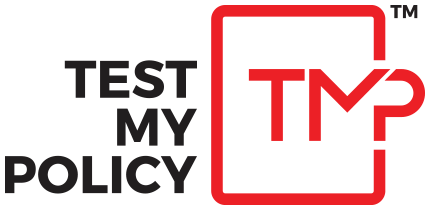
08-Jun-2021
- Team TMP
How to Save on the Premium Of Your Health Insurance?
Today every insurance company claims that they have the best health policy plans to offer. As customers, we also want a policy with better coverage and fewer exclusions and limitations. But we need to remember that the higher and more comprehensive the coverage, higher the cost of the insurance. The premium of a health policy will usually go up if you want more features and benefits to be added to the policy.
Your health insurance premium may get affected by your age, medical history, profession, location, etc. However, there are also several ways you can make reduce your premium for a health policy. Read on to know some key points that can help you save on health insurance premium.
Factors that decide Health Insurance Premium
Health insurance premium is what we pay to the insurer to ensure uninterrupted medical coverage, and to keep the policy active. The cost of premium may vary from one policy to another, depending on these factors that impact the calculation of the premium:
- Age: With age, the premium increases. As we grow old, we are more susceptible to illnesses and the chance of filing claims due to a health issue is more. So it makes sense to buy a health policy even if you’re young and don’t feel the need for medical coverage. Remember, insurance premiums rise pretty quickly after 40 years of age, so buying early makes a lot of sense.
- Pre-existing illness: If you have no previous medical history, the premium is lower. But if you suffer from any pre-existing illnesses, the premium you’re charged will be on the higher side as you may require constant medical attention.
- Policy Tenure: Your health insurance premium also depends on the tenure of the policy. A renewable one-year health insurance policy costs more per year than one purchased for a longer tenure of 2-3 years.
- Types of Policy: A health insurance policy that covers critical illnesses will have a higher premium than a standard policy. Premium for an individual policy, even with a lower sum insured, will be different from a family floater. Usually insurance companies also categorise their plans (e.g., silver, gold, diamond) depending on the number features and benefits they offer. Policies with higher ratings are usually a little more expensive than standard plans, but offer fewer limitations and better coverage.
- No-Claim Bonus (NCB): NCB is the discount that you get on your insurance premium at the time of renewal for not making any claims during the tenure. Sometimes, NCB is added as bonus sum insured to your basic coverage amount. More the number of years of policy with claim-free years, more the amount of NCB that gets added to your policy.
How to reduce your Health Insurance Premium?
- Higher Deductible or Co-Pay: A deductible is the amount of money that the policyholder has to pay as part of the claim while the remaining amount will be paid by the insurer. If you opt for a higher deductible or Co-Pay, it will reduce the premium you need to pay.
- Family Floater: Under a family floater, all the members of a family are covered. Since the premium is not paid separately for each member, it costs significantly less as compared to individual policies, where the premium is paid separately for each policy. Family Floaters are the policies of choice for nuclear families and families with young kids.
- Long-term Policy: If you don’t want to compromise on the coverage, but want to reduce the health insurance premium, go for a long-term policy. In long-term policies, the premium is paid for 2 or 3 years together and is usually offered at a 15-20% discount compared to the annual policies.
- Do your Research: Before you purchase a policy, get quotes from different providers as the premium varies from one insurance seller to another. Go online to do a detailed research, compare features and benefits, and purchase the policy that best suits your needs and budget.
One great way to compare your existing heath policy is at testmypolicy.com. You can compare limits and benefits of your policy with similar health plans. Also to know if you’re paying optimum premium for your policy. You can enter a few details about your policy to instantly get a test report for your policy. The report tells if you’re adequately covered, what features and benefits your policy offers or not, and if you can get better coverage for a similar premium.
Conclusion
We know that quality healthcare costs have gone up exponentially in the past few years and are only going up every year. In such a scenario, staying prepared to meet any medical emergency is the need of the hour. Taking health insurance is a wise decision, but while doing so, do not purchase a policy because the premium is low. A cheaper policy may not give you the coverage you need. Similarly, don’t end up buying a high premium policy randomly without evaluating its features and benefits. Finally, do your research, compare features and premiums and then make an informed decision.
Oh, one more thing. Just because you have a policy for some time doesn’t mean you can’t get better benefits from newer plans that are now available. IRDAI allows you to port your policy at the time of renewal to seek better benefits or service. Test your health policy to know if you’re eligible to port your policy now.
Recent Article

28-Jan-2022
Super-Boost your health cover with Super Top-Up
The past few years have been a period of uncertainty and a bearer of bad news. Just when we thought this catastrophe was

08-Sep-2021
The Importance of Health Insurance
What is Health Insurance?
Health insurance is an agreement whereby insurance company agrees to

09-Aug-2021
What You Need to Know Before Porting Your Health Policy
Shantanu, a 45 year old professional, suffers from hyper-tension and when he bought health insurance, he cited the health

08-Jul-2021
Looking for Family Floater Health Insurance? Read this first.
A family floater health insurance protects you from high medical costs that may arise from the hospitalisation of your fa

08-Jun-2021
How to Save on the Premium Of Your Health Insurance?
Today every insurance company claims that they have the best health policy plans to offer. As customers, we also want a p

08-May-2021
A Simple Guide to Comprehensive Health Insurance
A health emergency can be a serious drain on one’s finances and resources. With the cost of quality health care and



